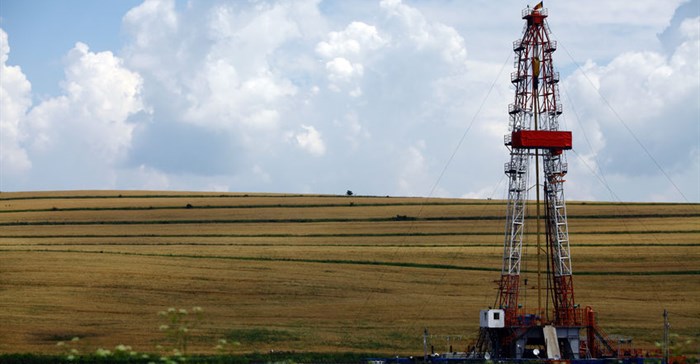
Top stories






More news















Logistics & Transport
Maersk reroutes sailings around Africa amid Red Sea constraints


Rhino director Philip Steyn and representatives were told by farmers they would rather die on their land than give it up for fracking.
"I think you are underestimating the power of a South African farmer. You and your company do not have the best interests of these people at heart," said Francois du Toit, CEO of African Conservation Trust.
About 300 farmers grilled Steyn at the Richmond Agricultural Hall on Monday.
The US oil company wants to explore 1.5 million hectares of land in KwaZulu-Natal by drilling holes on 10,000 farms.
Farmers fear that the method could lead to contamination of nearby water sources.
At the hearing, the farmers demanded to know how Rhino planned to deal with the issue of land rehabilitation, who the owners of Rhino were and the company's history and expertise in resource exploration.
Du Toit said Rhino had failed to show examples of what happens in the event of fracking leaks.
"It's amazing that you say that in the 300 frackings Rhino has undertaken there were no leakages in first exploration, when, in fact, stats show that in all fracking there's a 6% chance of leakages on first fracking. That's just remarkable," said Du Toit.
Mike Walters, a disgruntled member of the public, said he wanted to know the company's experience with the rehabilitation of fracked land.
Another farmer said: "This is a gamble and you are gambling with people's lives. You will leave a trail of destruction, crime and disease behind."
Erica Wilson demanded to know who the owners and investors in the company were, and questioned why Steyn was "cagey with information".
"Can you assure us it's not politicians?" she asked.
Steyn insisted Rhino had no political affiliations.
Another farmer said Steyn should bring his family and live permanently with them in fracked areas to experience first-hand the suffering the gas exploration method created.
"Why should we support this gamble that you don't even know will work out?" asked the farmer.
"Do you even have the moral sense of this? Won't Rhino be conveniently liquidated when the time comes to rehabilitate the place or compensate the farmers, leaving us holding the baby?"
The farmers said their biggest worry was water and soil contamination and insisted Rhino's environmental impact assessment was not clear.
"Go back and do your homework. We object to and reject fracking," one farmer said.
They unanimously rejected the prospect of fracking, saying it was not feasible.
Du Toit said hydraulic fracking was the single biggest threat to the environment and had social, cultural and health implications.
Steyn assured farmers they would be compensated according to what they will lose in production of a fracked area, which is "less than the size of a tennis court".
Source: The Times

For more than two decades, I-Net Bridge has been one of South Africa’s preferred electronic providers of innovative solutions, data of the highest calibre, reliable platforms and excellent supporting systems. Our products include workstations, web applications and data feeds packaged with in-depth news and powerful analytical tools empowering clients to make meaningful decisions.
We pride ourselves on our wide variety of in-house skills, encompassing multiple platforms and applications. These skills enable us to not only function as a first class facility, but also design, implement and support all our client needs at a level that confirms I-Net Bridge a leader in its field.
Go to: http://www.inet.co.za